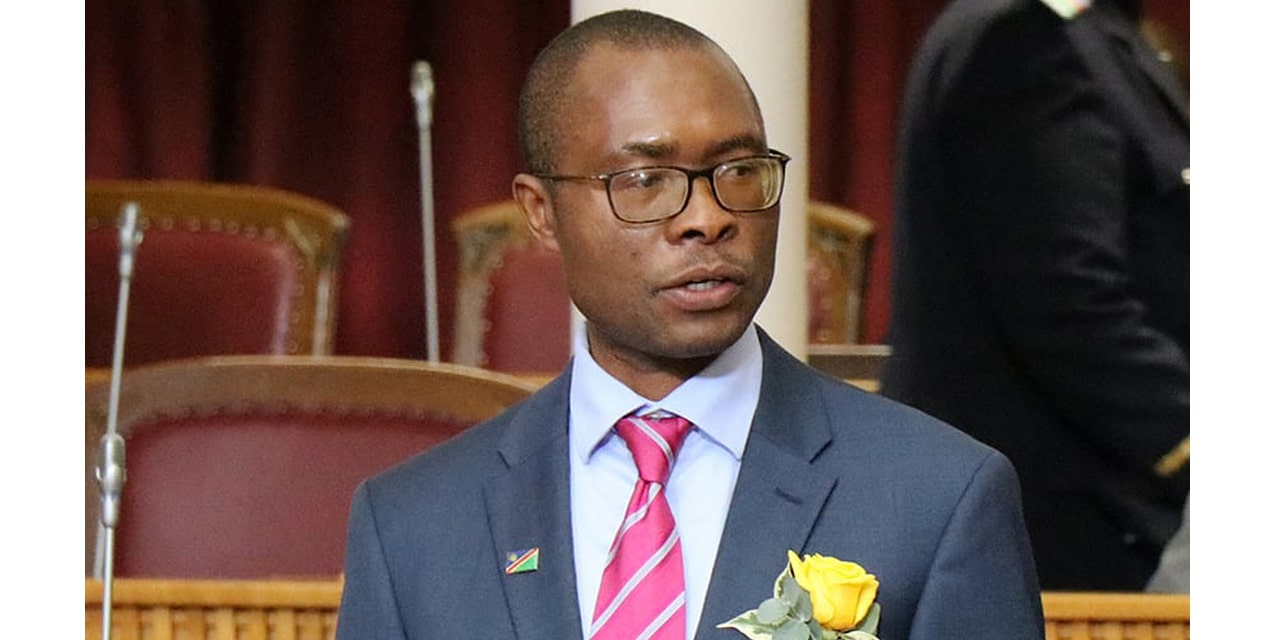Andrew Kathindi
Namibian economic activity is predicted to contract by 7.9 percent, about 0.1 percent more than the 7.8 percent the Bank of Namibia (BoN) had forecasted for 2020, in August this year.
Finance Minister, Iipumbu Shiimi in his delivery of the mid-term budget review, said the contraction was, “ a historic high whose contours cut across all economic sectors.”
“The pandemic induced deepest historic recession this year exacerbated this situation, with a fallout on businesses, jobs, per capita income and public revenue.”
Shiimi further said, “While the worst impact of the pandemic appears to have abated, its impact on the economy calls for timely deployment of a package of policy interventions to foster economic recovery, buttress macroeconomic stability and anchor fiscal sustainability. To achieve these objectives, enabling macro-critical structural reforms are needed and their implementation could no longer be delayed.”
The output from all major industries according to the finance minister is estimated to have declined due to supply and external demand disruptions brought on by the various lockdowns that were put in place during the state of emergency, which lasted for six months.
The waning consumer demand according to Shiimi which came as a result of the lockdowns, as well as the pass-through effects of lower oil prices saw the annual inflation figures decelerated to 2.4 percent by September 2020 from 4.3 percent in 2019.
According to the finance ministry, primary industries such as farming are estimated to contract by 11.1 percent in 2020, which could have been worse save for better rains, with the decline in the secondary industries estimated at 11.7 percent and 5.8 percent for the tertiary services industries.
The Finance Minister further stated that as the economy has gradually opened up, the pace of economic activity is projected to rebound to positive growth of about 2.2 percent by 2021 and further strengthen to an average of 3.6 percent over the next Medium-Term Expenditure Framework (MTEF).
This comes as the minister has announced an “Electronic Filing Tax Relief Programme in terms of Section 80 of the Income Tax Act and Section 30 of the Value Added Tax Act.
“The relief is to be provided to taxpayers with outstanding tax arrears who file their returns electronically, starting in February 2021. The relief is in the form of 100 percent of penalties and 95 percent interest to be written off if capital tax debt is settled within 3 months from commencement of programme.”
The incentive will provide relief of 100 percent penalties and 75 percent interest to be written off if the capital tax debt is settled within 12 months from commencement of the programme and 100 percent penalties and 95 percent suspension of interest for taxpayers in the hardest hit industries such as tourism, hospitality, aviation, travel and construction sectors, the Minister revealed.
The incentive to have electronically file returns comes as the Ministry this year failed to meet its target for online tax registration through its Integrated Tax Administrative System (ITAS).
Only 98,959 out of 369,509 taxpayers have registered through ITAS, the Ministry revealed.
“There has been a slow movement on the taxpayer’s registration through the ITAS platform which is due on the 30th of September 2020, as Namibia has a total number of 723,939 tax payers, of which only 171,646 has registered so far through the Integrated Tax Administrative System (ITAS) this year,” Director of Small and Medium Taxpayers from the Ministry of Finance, Chris Classen previously told Windhoek Observer.
2019/2020 – outruns
– The total budget for FY2020/21 amounted to N$72.8 billion, with the budget deficit estimated at 12.5 percent of GDP and public debt as a proportion of GDP estimated at 69.8 percent.
– Actual revenue outturn amounted to N$58.5 billion, generally on par with the budget revenue estimate of N$58.3 billion and amounting to 32.7 percent of GDP.
– Nominal GDP is 1.7 percent better than as at the time of the FY2019/20 Budget Review as per the final National Accounts for 2019.
– Total expenditure, including interest payments amounted to N$67.3 billion, relative to N$66.6 billion budget as a result of some guarantees which were called. This reflects 101.2 percent execution rate owing to increased statutory spending, which is deemed appropriated. The non-interest operational budget implementation rate stood at 99.3 percent, while the development budget execution rate stood at 88.1 percent.
– The budget deficit stood at 4.9 percent of GDP, compared to the budgeted 4.1 percent due to the revisions in nominal GDP.
– Total debt stood at N$100.4 billion, equivalent to 56.1 percent of GDP.
2020/2021- Overall mid-term assessment
– The preliminary revenue outturn stood N$26.1 billion, which is 51 percent of the budgeted revenue and about 3 percent better than average historical half-year collection rate.
– The half-year, total expenditure execution, including expenditure commitments stood at N$35.8 billion, some 49.0 percent of the budget. The half-year non-interest operational budget expenditure execution, including expenditure commitments stood at 50.9 percent, while the development budget implementation rate including expenditure commitments by the end of September 2020 stood at 50.8 percent.
– Total debt stock as at the half-year mark stood at N$106.1 billion, equivalent to 60.9 percent of GDP and reflecting the 53 percent of the budgeted financing requirements met by the half-year mark.




